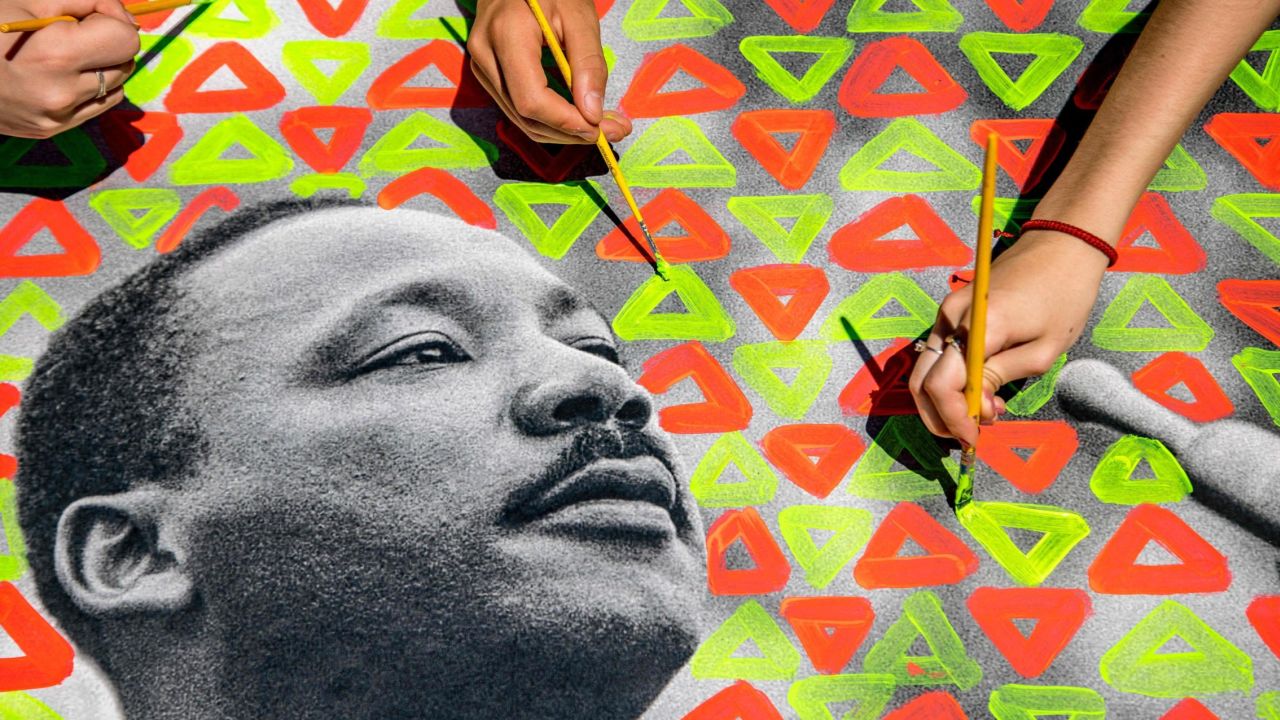Editor’s Note: Jemar Tisby, PhD is the author of the books “The Color of Compromise” and “How to Fight Racism.” He is a professor of history at Simmons College of Kentucky, and writes frequently at JemarTisby.Substack.com. The views expressed here are his own. Read more opinion on CNN.
Nearly 50 years ago, political leaders thought Black history was so important to the national identity that they quadrupled the time formally set aside for it.
Black History Month began as a single week, Negro History Week, in 1926 with the vision of Carter G. Woodson. In 1976, it expanded to an entire month as a part of the nation’s bicentennial celebrations; since President Gerald Ford, each US president has officially designated February as Black History Month.

When we think of Black history in singular terms—a single test, a single class, a single month—we can miss its deeper meanings. Historians speak of “the long Civil Rights movement” as a way of thinking more carefully about its precursors and lasting effects. Perhaps it is time to think in terms of a “long Black History Month.”
My boss, Simmons College president Kevin W. Cosby, recently inspired me to consider the power of taking Black history beyond the confines of February. He told me, “My Black History Month begins on MLK Day.”
Instantly, his perspective made sense to me. We observe MLK Day nationwide on the third Monday of January. It is one of the most recognized annual traditions related to Black history and the Civil Rights movement. Enormous effort goes into planning MLK Day events each year—speeches, award ceremonies, parades, marches, service opportunities, and more.
Does it make sense to pause the remembrances that accompany MLK Day for two weeks until the start of Black History Month, or would it make more sense simply to continue to the movement of memory for an additional two weeks?
Cosby went on to explain that the conclusion of a Black History Season might be April 4, Martin Luther King, Jr.’s assassination. The purpose would not be to dwell on Black death, but to ponder the causes and consequences of an uncompromising insistence on civil and human rights.
If we stop to think about the significance of marking an entire month for Black history in America, then we find once again–timing is everything.
The idea of a whole month of Black history was not new. People in West Virginia, where Woodson grew up, had been celebrating “Negro History Month” beginning in the 1940s. Black students at Kent State University proposed Black History month in 1969.
A few years later, in 1976, Ford officially declared a national observance of Black History Month. Using 1776 and the Declaration of Independence as the nation’s “founding”, a year of patriotic activities were planned for the country’s 200th birthday in 1976. As part of the country’s bicentennial celebration, political officials designated the whole month of February for Black history.
In a statement marking the occasion, Ford said, “In the Bicentennial year of our Independence, we can review with admiration the impressive contributions of black Americans to our national life and culture.”
Ford also connected Black History Month to the stated ideals of freedom which led to the creation of the United States.
“Freedom and the recognition of individual rights are what our Revolution was all about. They were ideals that inspired our fight for Independence: ideals that we have been striving to live up to ever since. Yet it took many years before ideals became a reality for black citizens.”
Contrast that with another Republican: Florida Gov. Ron DeSantis. In January, DeSantis and his administration opposed the AP African American Studies frameworks composed by the College Board. He said the frameworks “lacked educational value.” This week, correspondence between the College Board and the state of Florida emerged that amplified the tension, which is further complicated by DeSantis’s presidential ambitions (and the centrality of his rejection of the study of race and racism to that agenda).
People in DeSantis’ home state of Florida as well as around the nation have voiced their protest to his actions. They claim that opposing AP African American Studies, the first time it has ever been offered, serves to make information about Black history and other similar fields harder to acquire precisely when it should be more accessible.
Since then, DeSantis’ proposals to hinder racial education have gone even further. In late January he announced his plans for higher education that include required courses on Western Civilization and a desire to “eliminate all DEI [Diversity, Equity, and Inclusion] and CRT bureaucracies.”
DeSantis is only the symptom of a deeper issue with how we frame Black history. It seems that many people’s understanding of Black history is limited to scant details about slavery, Rosa Parks refusing to move on the bus, and a line or two from King’s “I Have a Dream” speech. This is partly because we tend to think of Black history as an event rather than an ongoing pursuit.
Among the many reasons for our nation’s lack of Black history knowledge, once again—timing is everything.
Black history cannot be reduced to a set of historical tidbits posted on social media for 30 days. We do a disservice to Black history when we view it as a set of isolated facts rather than as a complex and interwoven series of stories sewn into the diverse tapestry of lives in this land. At its best, Black history is a way of thinking about ourselves and the world in a more inclusive and equitable manner.
Black history teaches us to examine life from the perspective of the marginalized and oppressed. It teaches us about survivors, resisters, and creators. Black history develops a mindset that is always asking, “Who is missing? Whose voices need to be heard?”
I discovered one of my historical heroes, Fannie Lou Hamer, because scholars looked for the people whose lives are usually ignored. Born in 1917, Hamer was the twentieth of twenty children in a Mississippi sharecropping family. She would likely have lived and died in obscurity—another of the anonymous poor—but in 1962 she heard a presentation about voting rights at her local church and became involved in civil rights activism. She soon rose to national prominence and even testified at the Democratic National Convention in 1964.
How many more Hamers are out there? Black history teaches us to scour the past for a narrative that goes beyond the “victors” and includes all kinds of stories.
A life informed by Black history takes years to develop. It requires mental, cultural and civic space to reflect on the rich meaning of the stories and events that comprise Black history.
A long Black History Month would offer more space to consider the Black experience. Rather than hustling through mounds of book recommendations, documentaries, quotes and dates—an extra couple of weeks of Black history makes it possible to steep in the knowledge of the past and ponder how it will affect your present.
More than simply revealing what went wrong, studying Black history compels us to ask, “How can we make it right?”
People who study Black history with humility and consistency begin talking about reparations, expanding voting rights, and allocating more resources to Black institutions. They begin to question an unjust racial status quo and seek progress. They begin to take control of a narrative that has too long been in the hands of a privileged few.
Black history is more than a meme. It is more than a month. It is more than memory. Black history is mindset that leads us into a deeper knowledge of ourselves and our communities.







